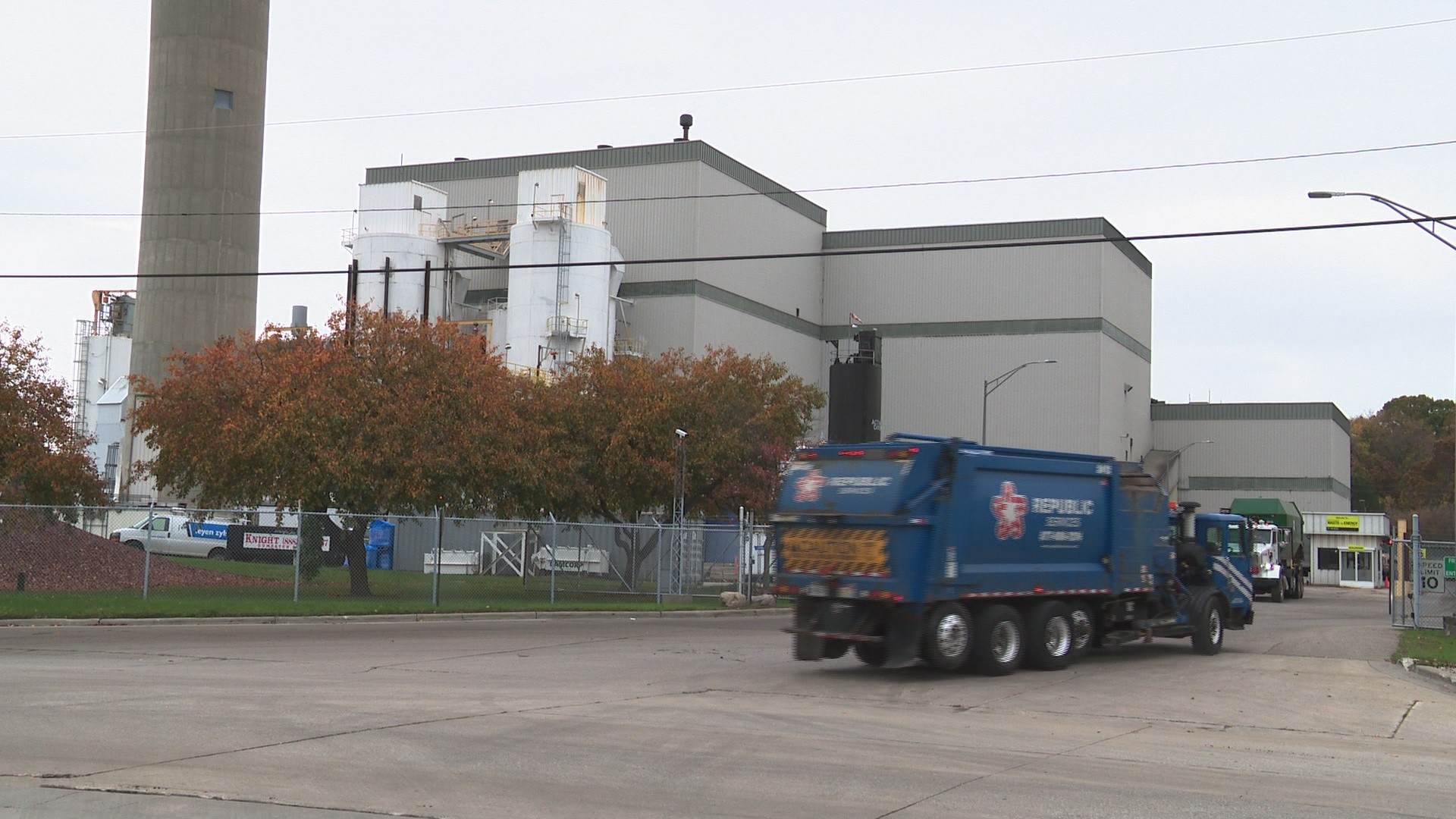GRAND RAPIDS, Mich. — ‘Trash talk’ abounds as climate groups come out against a raft of possible state environmental bills in Lansing. Among other impacts, the legislation aims to achieve 100 percent green energy use in Michigan by 2040.
But the bills, like SB-271, have been watered down since their inception, environmentalists say. Critics pointed to one provision: classifying facilities like the Kent County Waste Incinerator as 'green' and giving them renewable energy credits.
Environmentalists referred to the move as an ‘accounting trick’ or ‘greenwashing.’ They’re now asking the legislature to, in effect, go back to the drawing board.
“The inclusion of the incinerator as clean energy is—it makes no sense,” Elaine Isely of the West Michigan Environmental Action Council said during Monday’s media conference.
Critics believe the green energy moniker simply doesn’t fit an operation like this one.
“Incineration is not truly energy production,” Katherine Savoy of the Ecology Center explained. “It's primarily waste management. And it's a poor waste management practice.”
The stacks looming over Market Avenue do belong to a waste incinerator, harnessing power from burning garbage. Trash, Savoy notes, that’s now increasingly plastic and more toxic than it used to be.
“Incinerators create some of those toxic emissions,” she said.
“The attempt to include the Kent County trash incinerator is a huge step back for environmental justice,” Kareem Scales, who sits on the board for Community Collaboration on Climate Change, added.
“Nationwide, eight out of ten trash incinerators are located right here in low-income and communities of color,” Scales said. “What’s at stake is the health of our community, our students, our elderly, all of us.”
Sergio Cira-Reyes says the aftermath of other peoples’ burning garbage has become a punishing daily reality for the communities of color, the parks and the handful of schools within a mile of the main gates.
“This incinerator brings in trash from all over the county, the suburbs and other communities that are not diverse, and they burn,” he said. “Here, we have to suffer and be exposed to the harmful effects of this incinerator.”
“We really do our best to be a good neighbor,” Steve Faber of the Kent County Department of Public Works explained via Zoom Monday.
“Our current waste energy facility, on average, operates 90% below EPA standards for air quality,” he noted. “We're actually a best in class system as it relates to waste to energy… This has also prevented an entire landfill from being built in Kent County.”
The plant, in exchange, covers the energy needs of over 10,000 homes countywide. It’s also better, Faber claims, than many of the alternatives. If the plant is not included in the pending legislation, he says, the lost energy credits could mean higher trash bills locally.
Activists worry the debate itself could prove a distraction, stymying new investment in sustainable solutions. They urge locals to call their representatives and in turn, ask lawmakers to reconsider.
“We need bold leadership now,” Marta Johnson, an organizer of Monday’s rally encouraged. “We don't need to be relying on old ideas.”
The legislation passed the senate and is under review in the house at the time of publication.
►Make it easy to keep up to date with more stories like this. Download the 13 ON YOUR SIDE app now.
Have a news tip? Email news@13onyourside.com, visit our Facebook page or Twitter. Subscribe to our YouTube channel.

